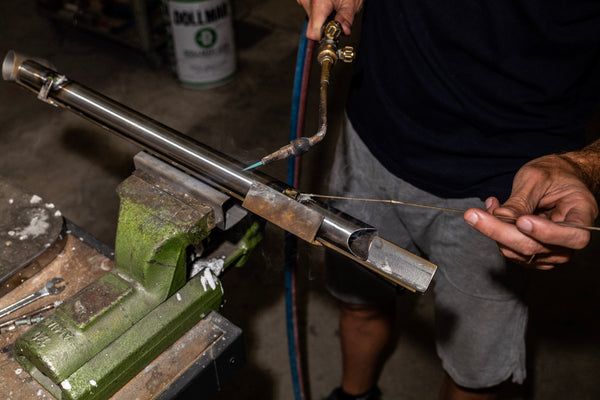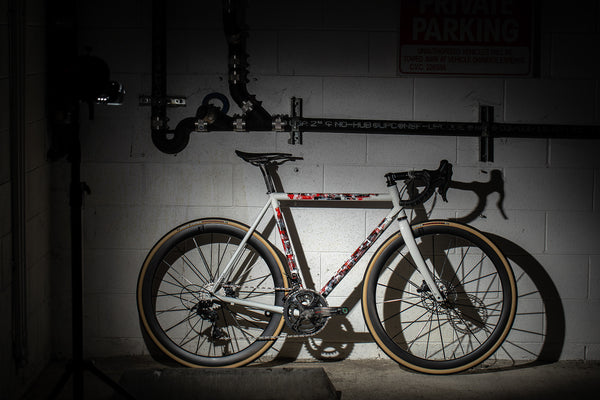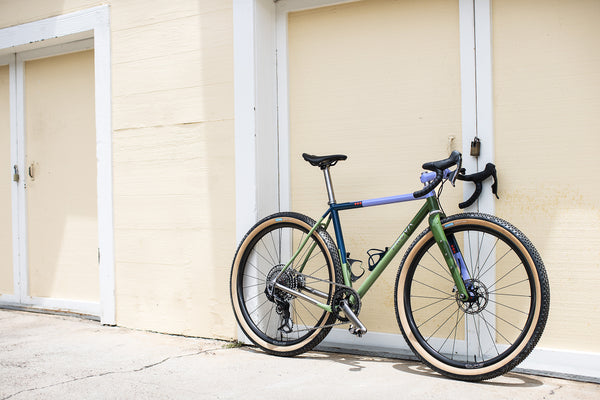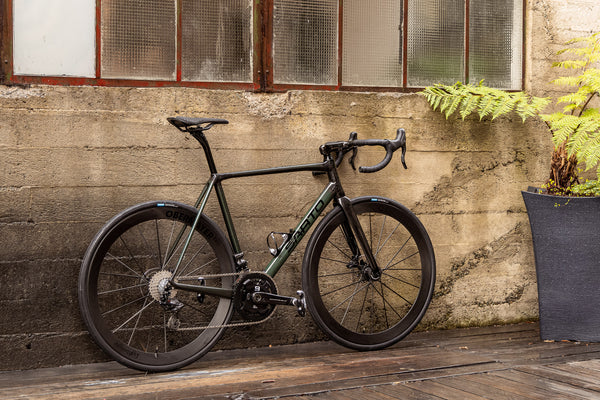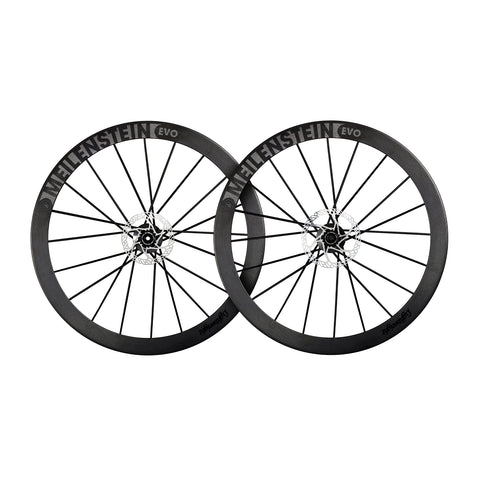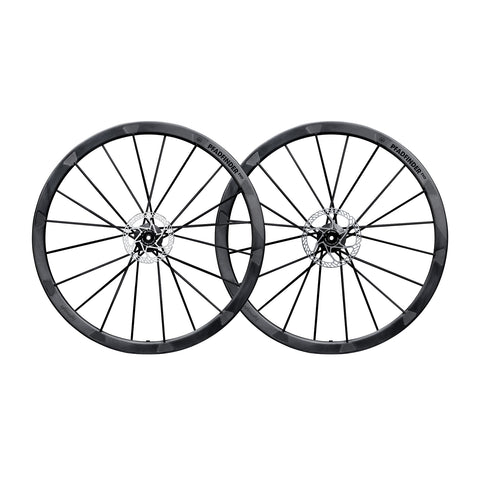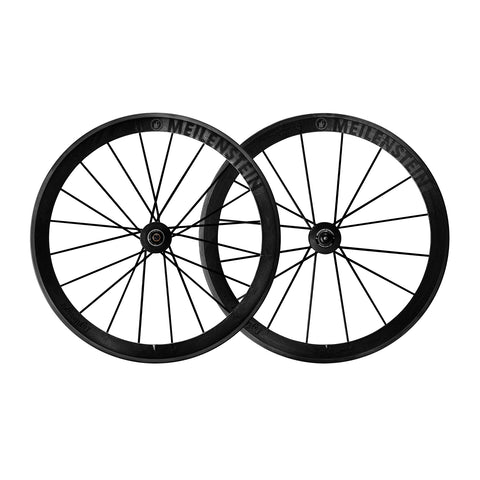A FAST START
Like many things in cycling, Lightweight's origins can be traced back to automotive racing. Back in the 1980s, Rudolf Dierl and Heinz Obermayer worked for a German motorsport company building aerodynamic components for race cars. They produced in small batches, working with high tech fiberglass and plastic materials. As a strange offshoot from their usual performance, it had been suggested that they use their composite expertise to build plastic wheel coverings for bicycles. What for? The intent was to protect children's feet from getting caught in the spokes when riding on the back of their parents' bike, quite the contrary to the Lightweight we know today. As it would turn out, the two of them coincidentally found themselves at a triathlon to discover riders had attached these covers to their race bikes to gain an aerodynamic advantage.
A RACING HERITAGE
After a stint building wheels for trotting, a form of racing where horses pull jockeys in small carriages, Rudolf and Obermayer finally brought their focus to performance bicycle wheels. In 1990 they introduced their first disc wheel, the Ultec, made of carbon fiber wrapped around an inner foam core. A few years later, they would unveil their first spoked wheel made entirely of carbon fiber - the genesis of the lightweight wheels we know and love today.
German engineering is synonymous with quality, and Lightweight is a proud standard-bearer for that deserved reputation. With thirty plus years of success at the highest level, Lightweight continues to be the benchmark of boutique racing wheels. Of course, they've evolved along the way and expanded their offerings to an array of different purpose-built carbon rimmed, carbon spoked, carbon hubbed super wheels, yet their classic design has proven to be as timeless as it is sublime.

